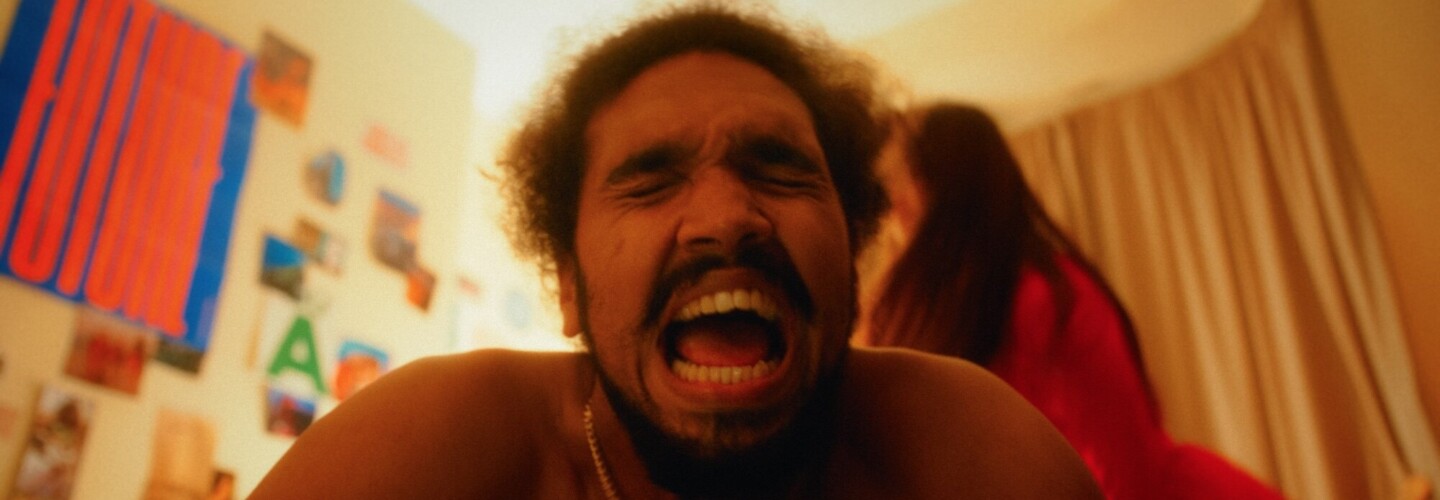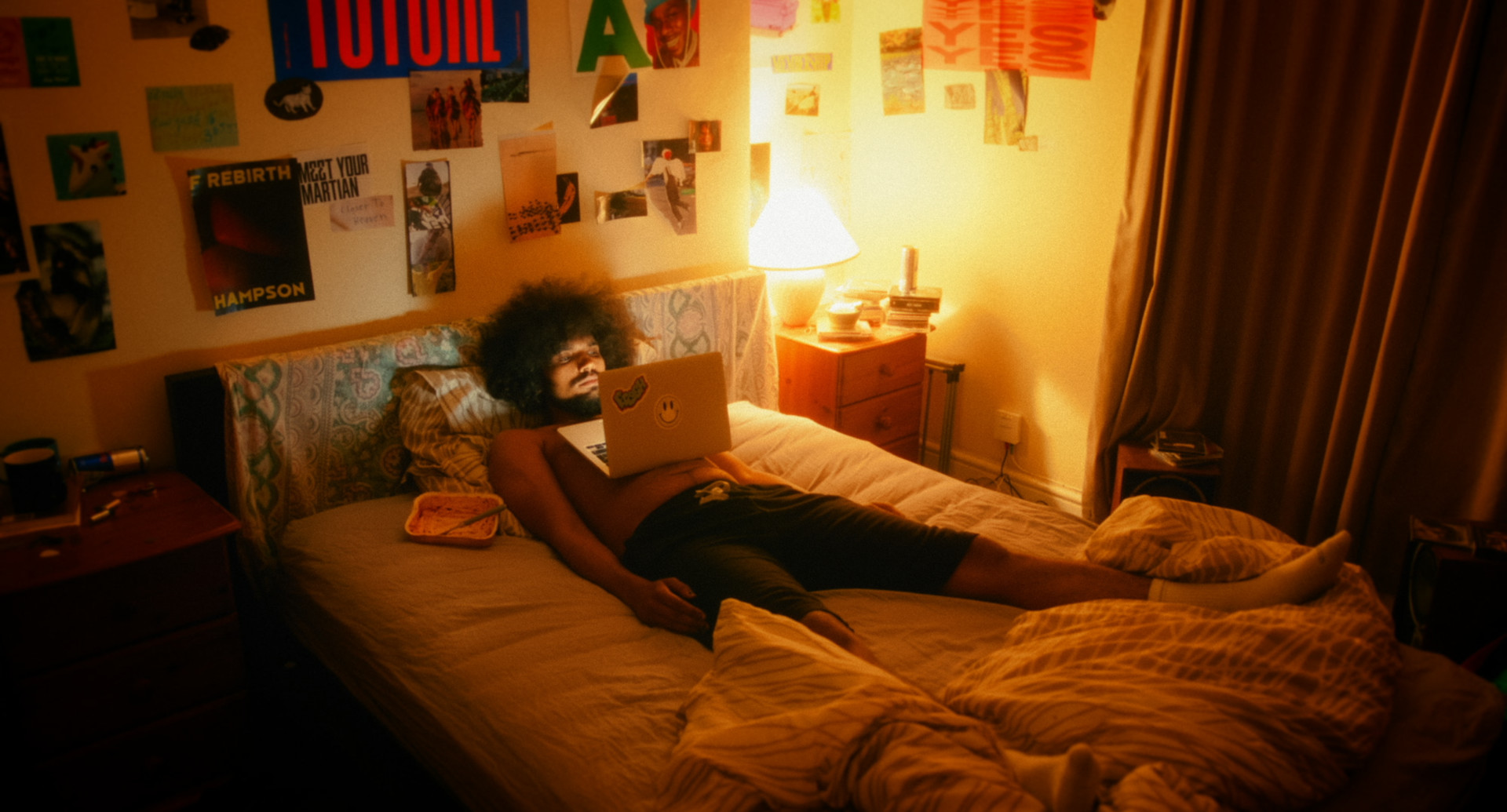
At the beginning of my interview with Director Will Wightman he discusses the frustrations he finds in watching work supposedly aimed at young twenty-somethings that is so obviously created by someone over the age of 25. He pinpoints the fact that it gives the work a lack of authenticity, and he’s right. It’s that very notion which gives Heart Failure, Wightman’s new short film musical, such a sense of genuine vitality. You can tell by how Heart Failure looks, feels and sounds that it was made by someone who is experiencing the same life stressors as his protagonists. It’s also more impressive that Wightman made the film whilst he was studying at Falmouth University, a feat which has left us feeling that the future of film is in the right hands. DN is delighted to premiere Heart Failure online today alongside a conversation with Wightman, who recently picked up a Best Director award at the BFI Future Film Festival, about musicals, crowdsourcing and the challenges of shooting an ambitious student production in the middle of the pandemic.
What drew you into making a short film about heartbreak?
I think the initial idea for Heart Failure honestly just came from a desperate need to make something that actually captured what it’s like to be a Gen Z. I get really frustrated with how so much of the world talks about young people, and the nature of the film industry is such that basically no high-end content is ever written or directed by anyone under the age of 25. With that in mind, writing Heart Failure was really just about trying to distil down my own experience of being 21 into something that captured that as authentically as possible and creating this alternative musical seemed like the perfect way to do that.
What was it about the musical space that married with your concept of distilling your own experience of being 21?
As a lifelong musician, I’ve always felt that the musical genre was a relatively unexplored space. I just think there’s huge potential for stories told through music but so often the whole genre is shrugged off as cheesy and outdated. Injecting a musical with electronic dance music and super contemporary filmmaking was a really exciting combination to me. With platforms like TikTok taking off, and even just the ability to stream your own playlists 24/7, music plays such a massive role in the all-digital world now, so it felt like a great way to get this snapshot of modern youth culture. A Gen Z musical that you could play in a cinema… and a nightclub.
Heart Failure was really just about trying to distil down my own experience of being 21 into something that captured that as authentically as possible.
I was kind of forming this idea for a short film about young relationships and breakups in parallel to the musical to start with. I had this two year period at uni where I was just surrounded by messy breakups, including several of my own, and I noticed this weirdly rigid cycle that all these relationships were going through. No matter how great or dysfunctional a couple is, there’s always this inevitability to the stages of a romance I think. There will be amazing times and there will be some form of breakup and period of getting over it. That is unless you share a burial plot, which is way worse if you ask me. The other element I was interested in was this pressure we all feel to be somewhere in that cycle of a relationship, that’s where the idea for Frank’s best friend Ali came from. They’re someone who is not defined by their relationship status and I think we should all be a bit more like that.
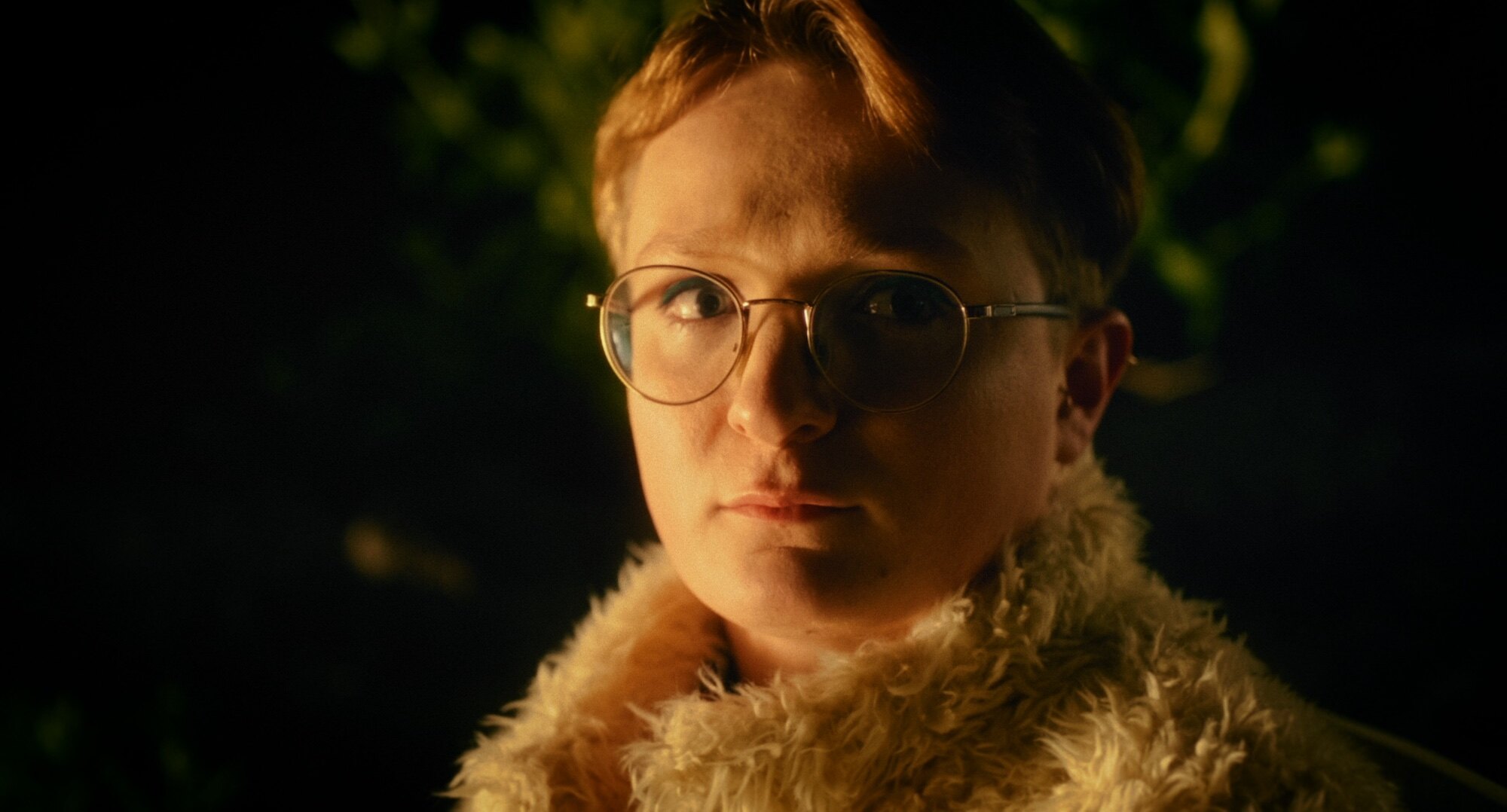
I think that’s what really works, all of those contemporary elements colliding at once. The visuals, the music, the performances are all really well matched. Plus, the film does what musicals do best which is convey feeling, which in the case of Heart Failure is the emotional stages of a relationship.
I wanted to tell a story where these emotional stages of a relationship were the plot points of the story, which is where the musical element really clicked in to place. We all know how much emotional power music can have, so the aim was to keep the mechanics of the on screen relationship fairly ambiguous and emphasise the feelings of each moment. That way, anyone watching Heart Failure could project their own experiences of breakups onto the film.
Injecting a musical with electronic dance music and super contemporary filmmaking was a really exciting combination to me.
Out of curiosity, what came first the script or the music?
The overall vision and plot of the film came together relatively quickly I think, but there was a huge amount of detail to figure out. I actually created the structure of the film in GarageBand for the first few months. Writing the music, recording demos of the dialogue sequences and just figuring out the pacing of the film in one continuous music track really helped me visualise what this thing was gonna be. It was a literal beat-sheet if you will. I did eventually convert the GarageBand project into a script, but we used that original track a lot throughout pre-production and constantly on set. Every beat of the film had to be planned out, so it became our guide for figuring out camera work and blocking.
You kickstarted the film too, how did you find the challenge of crowdsourcing?
We launched a Kickstarter campaign for the film in the third UK lockdown and people seemed to really connect with it. So much so, we hit our target in under five hours. My Producer Cleo Yeomans just worked miracles in that period. None of it would have happened without her. I’m also so grateful for each and every one of our backers. There really is no motivation like knowing hundreds of people are willing to support you like that. I just hope we’ve made them proud.
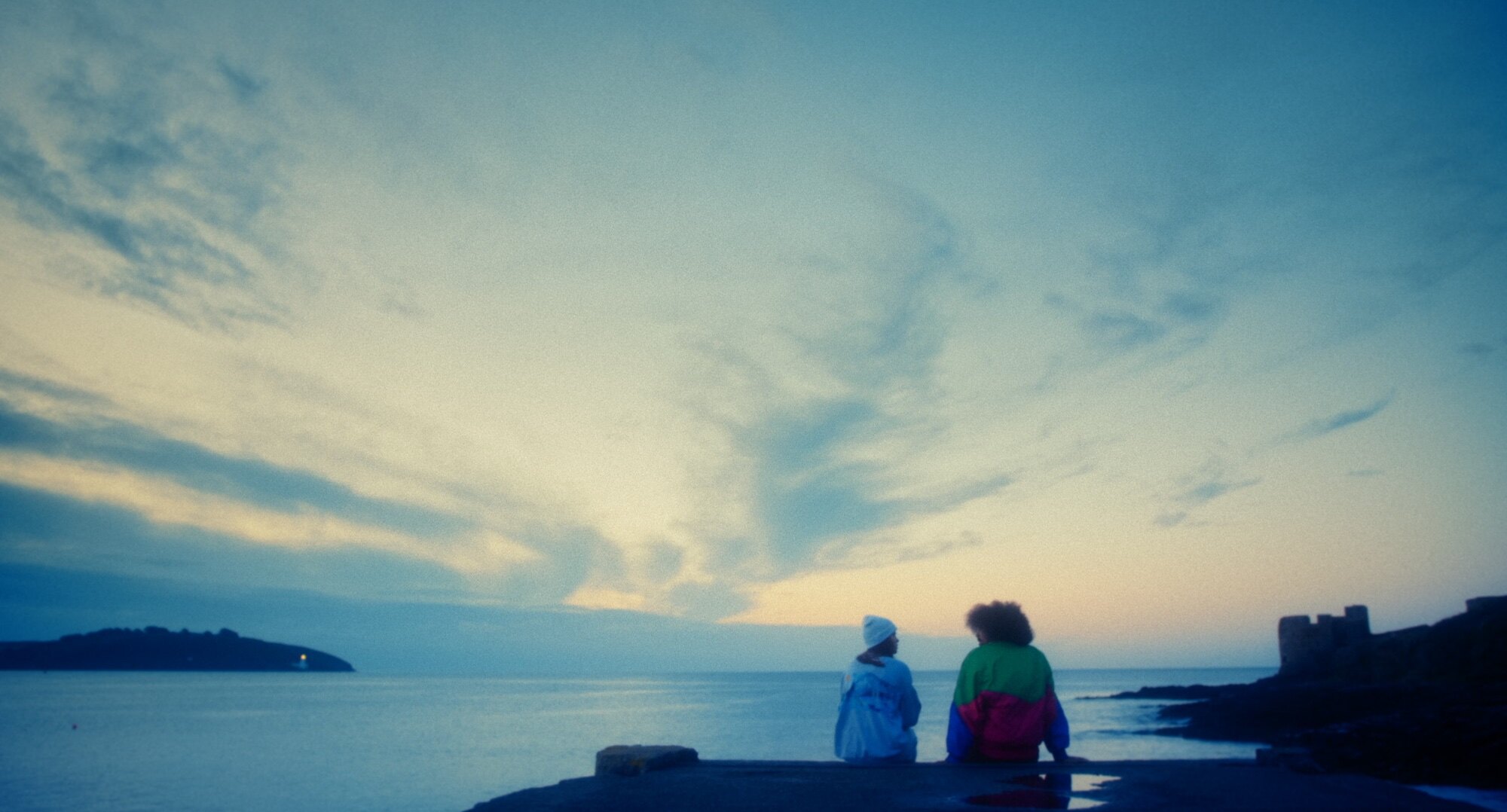

You don’t get the sense that this is a ‘lockdown’ film at all. If anything, it feels like the opposite. How did you find navigating production under the government guidelines?
With so much lockdown content being made in response to the pandemic, I really wanted to make something that was like the antidote to that, where you just forgot about the virus for a bit. That being said, we still had to plan and shoot all through the plethora of government orders. In our ten minute film, there were 200 camera and lighting set ups, 15 locations, dozens of costumes and props and because of the COVID-19 situation, only six people on set at a time. It was a logistical balancing act that I still don’t know how Georgia Cunningham, my first AD, pulled off.
How did you adapt to having such a small crew size?
For inside sequences, we had to get pretty clever with the way we filmed everything to keep numbers down. We shot a lot of the film through these POV shots so both actors didn’t have to be in the room at the same time and we used a lot of whip pans and digital masks to bring our actors into the same space. Believe it or not, we also bought a mannequin that was used in the sex scene to pull that sequence off. In the end, we also squeezed a couple of extra more intimate shots, like the kissing scene a little later on when restrictions were lessened. That helped a lot. Looking back I can’t believe we pulled any of it off to be honest, and I’m even more amazed that Leon Newman, Izzie Frymann and Harry Hancock gave such fantastic performances with often no one to bounce off.
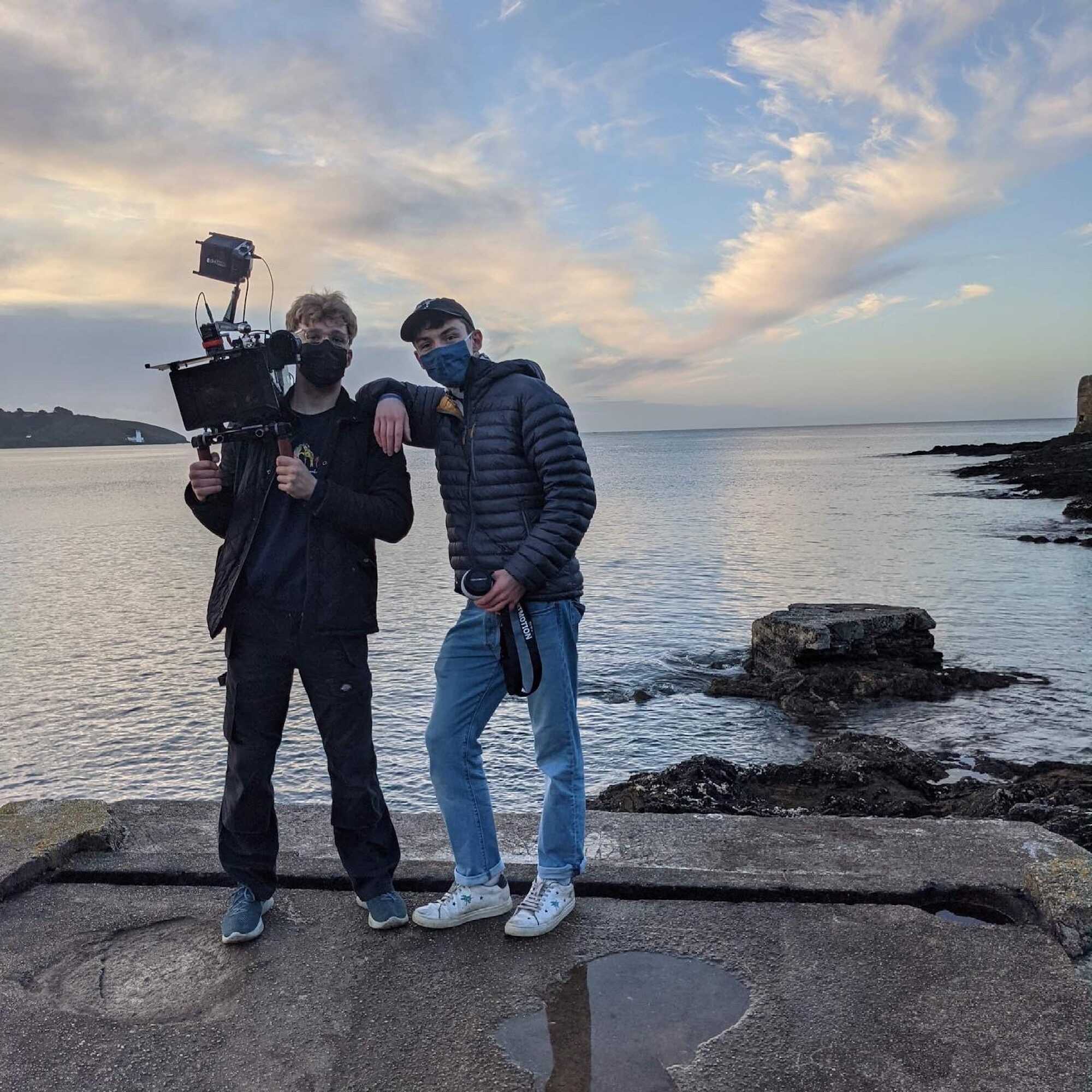
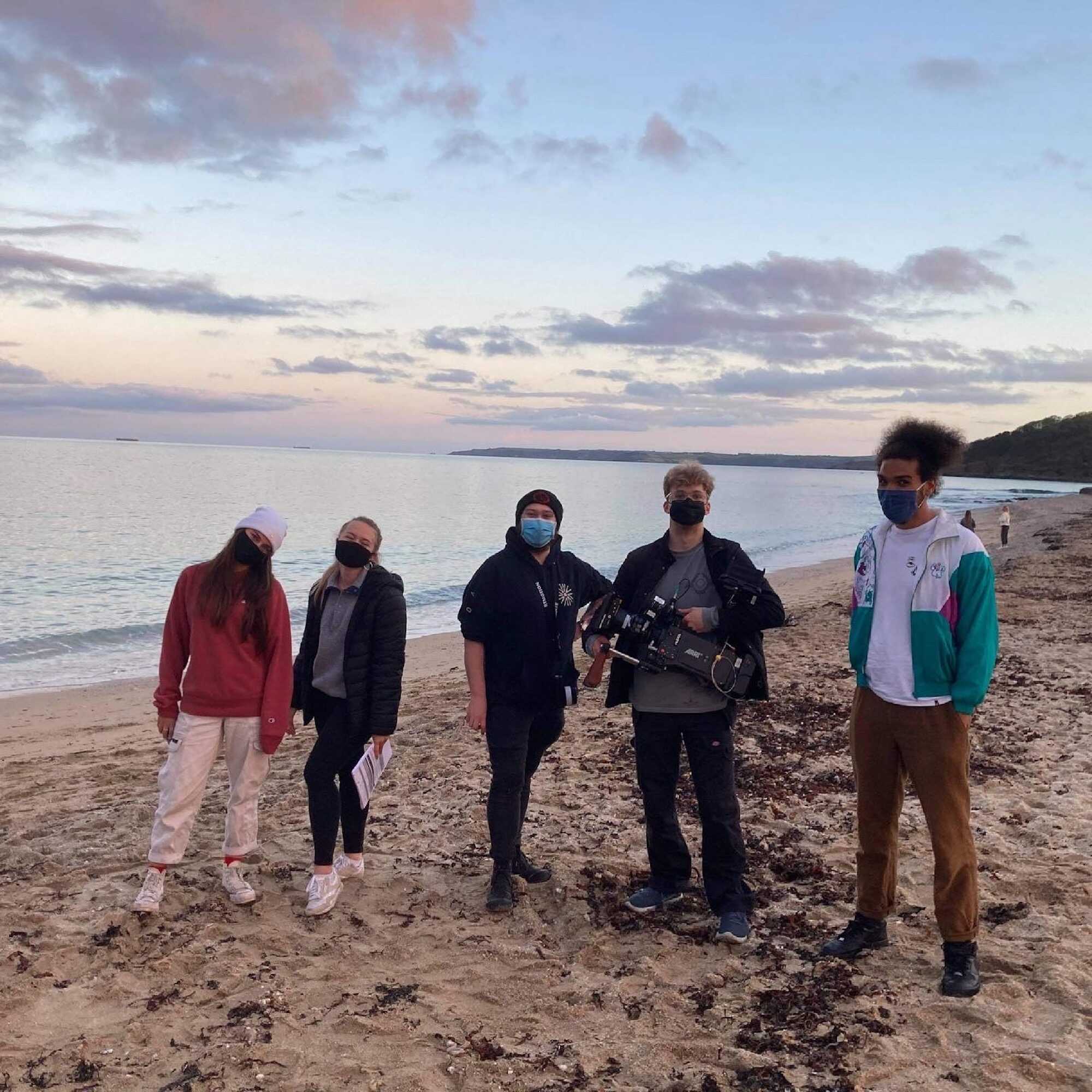
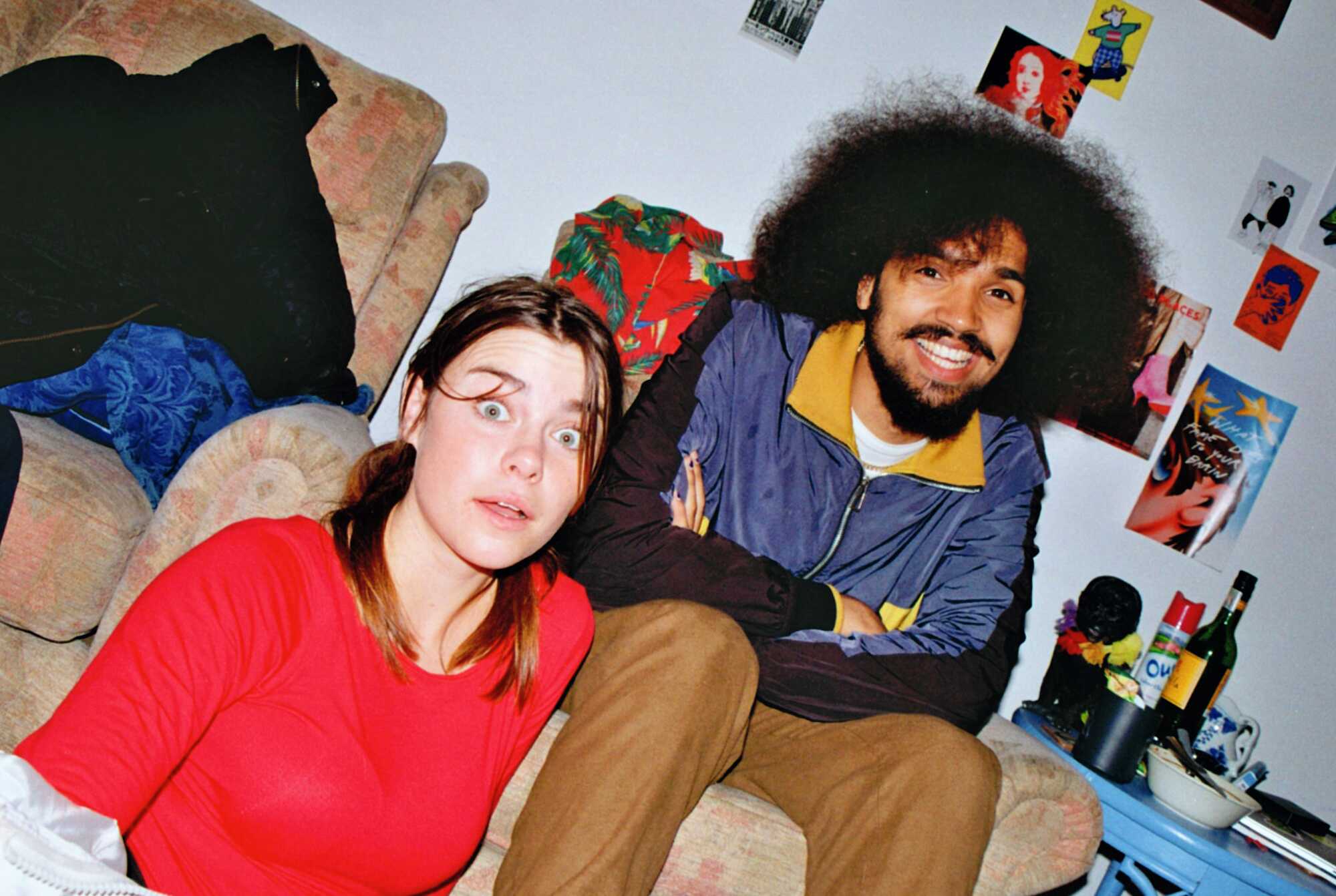
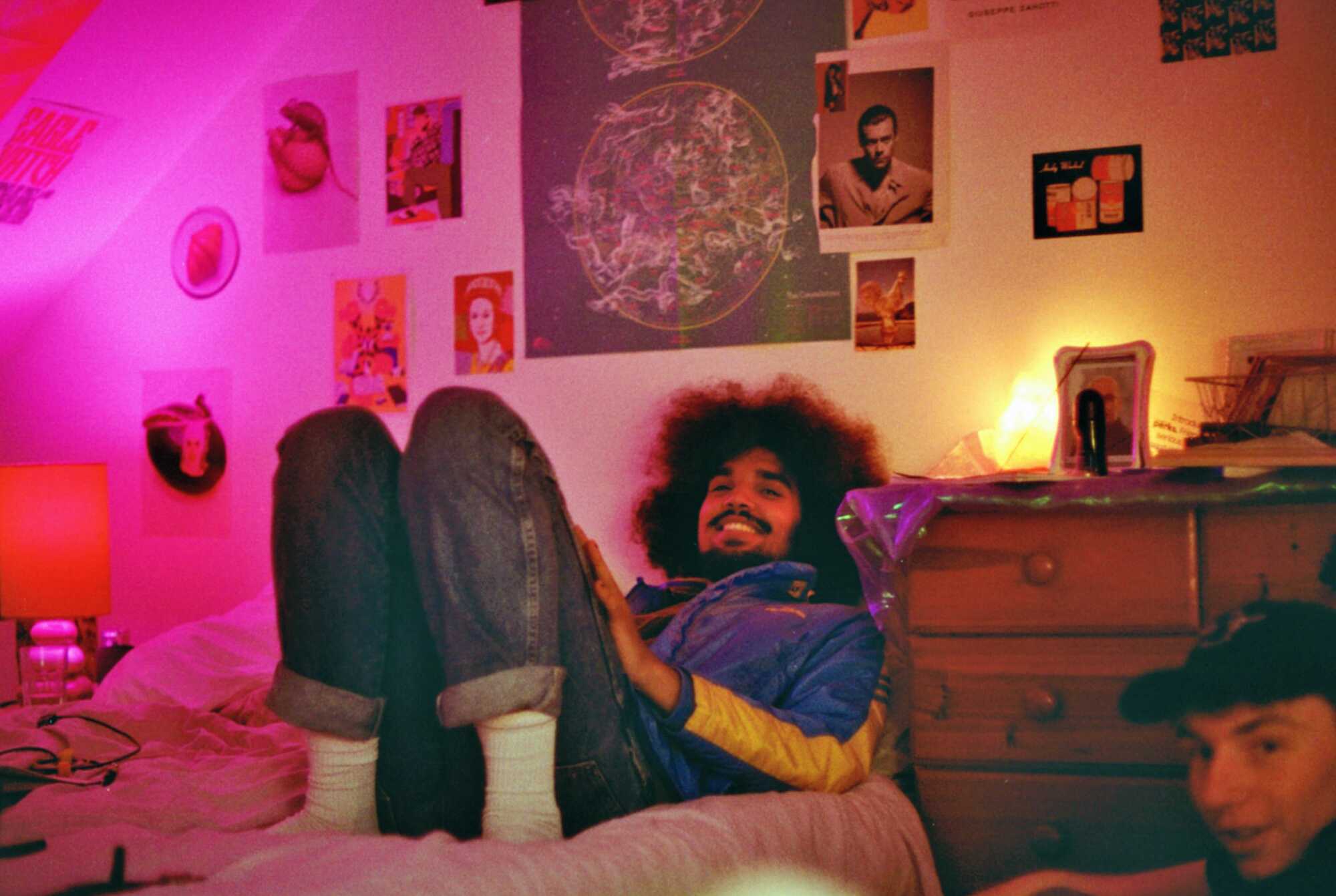
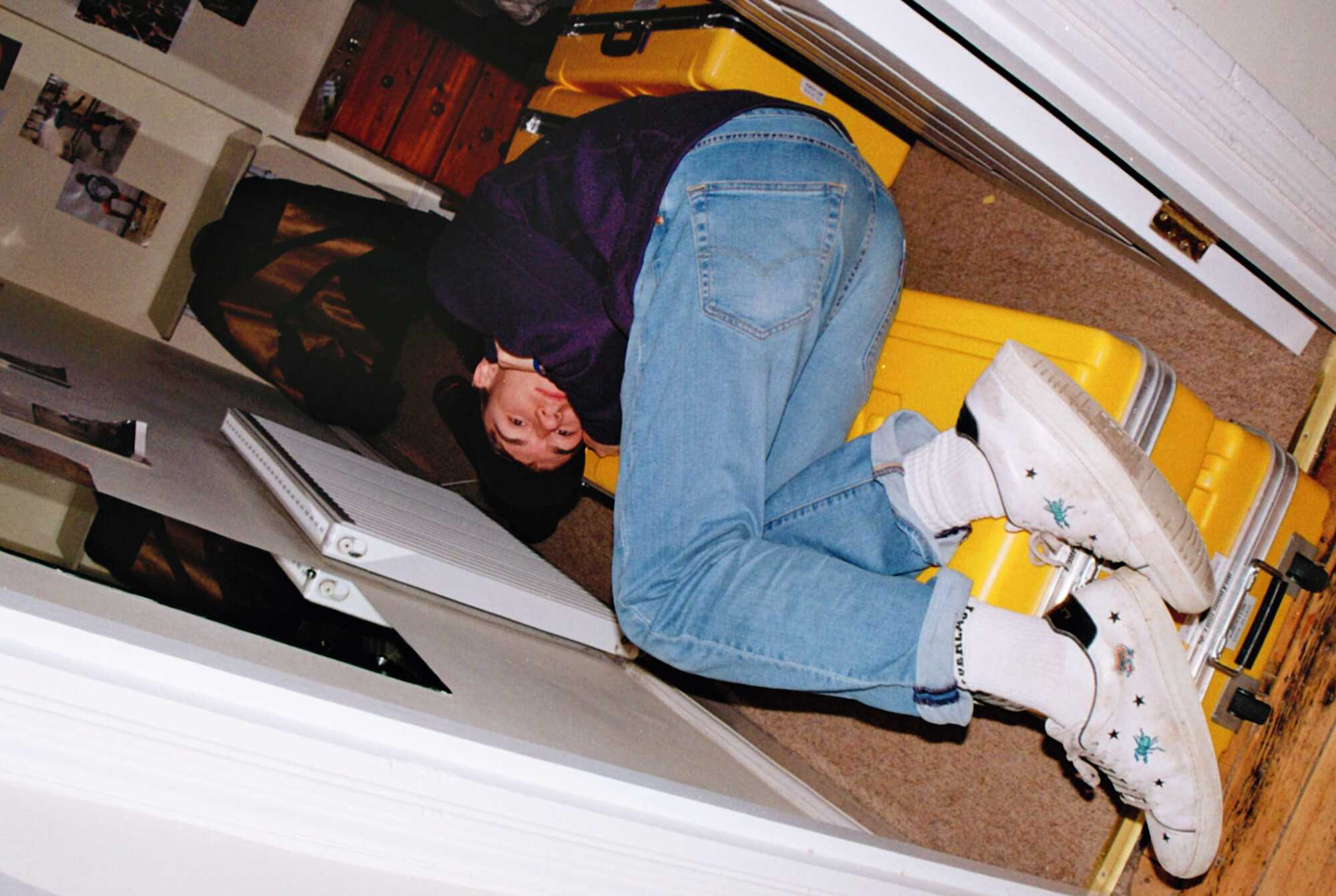
How long was the entirety of production? Did you manage to capture everything you needed in that time?
Production ran for eight days plus a day for recording music and two days for pick ups. It was all shot on an Alexa classic with Sigma zooms/primes and black ProMist filters. We had a couple of Arri hot lights, small aperture smart bulbs as well as a load of 60w incandescent bulbs that we bought for a couple of quid. Most of the film was shot in my student accommodation, which made it a lot easier for us to bubble and we could plan the film out even when we were in a full lockdown. Because of Covid, a couple of my housemates had moved out so the house was pretty much a blank canvas. My Art Director Grace Fortune and Set Dresser Hannah Bradley did an amazing job bringing that gross building to life.
A Gen Z musical that you could play in a cinema… and a nightclub.
Did it all come together in the edit as smoothly as you hoped with the music? It must’ve been such a satisfying moment when you first saw the visuals coupled with the soundtrack.
By the time we had filmed the damn thing, everyone was graduating and moving away so it was really down to just me and my long term creative partner Will Marchant to do post-production. Will has always been my amazing DOP and we founded our production company Cool Bean together at the start of university. We’ve been working together since school and, like me, he loves his music. We always produce the soundtracks for our films together and Heart Failure was no exception. I edited the film with Final Cut Pro on my 12 year old laptop, Will did the sound design and then we got Marco Caminiti in to do the colour for us. He probably had more experience than all of us combined, but it was so great to get someone that knowledgeable in for that last step.
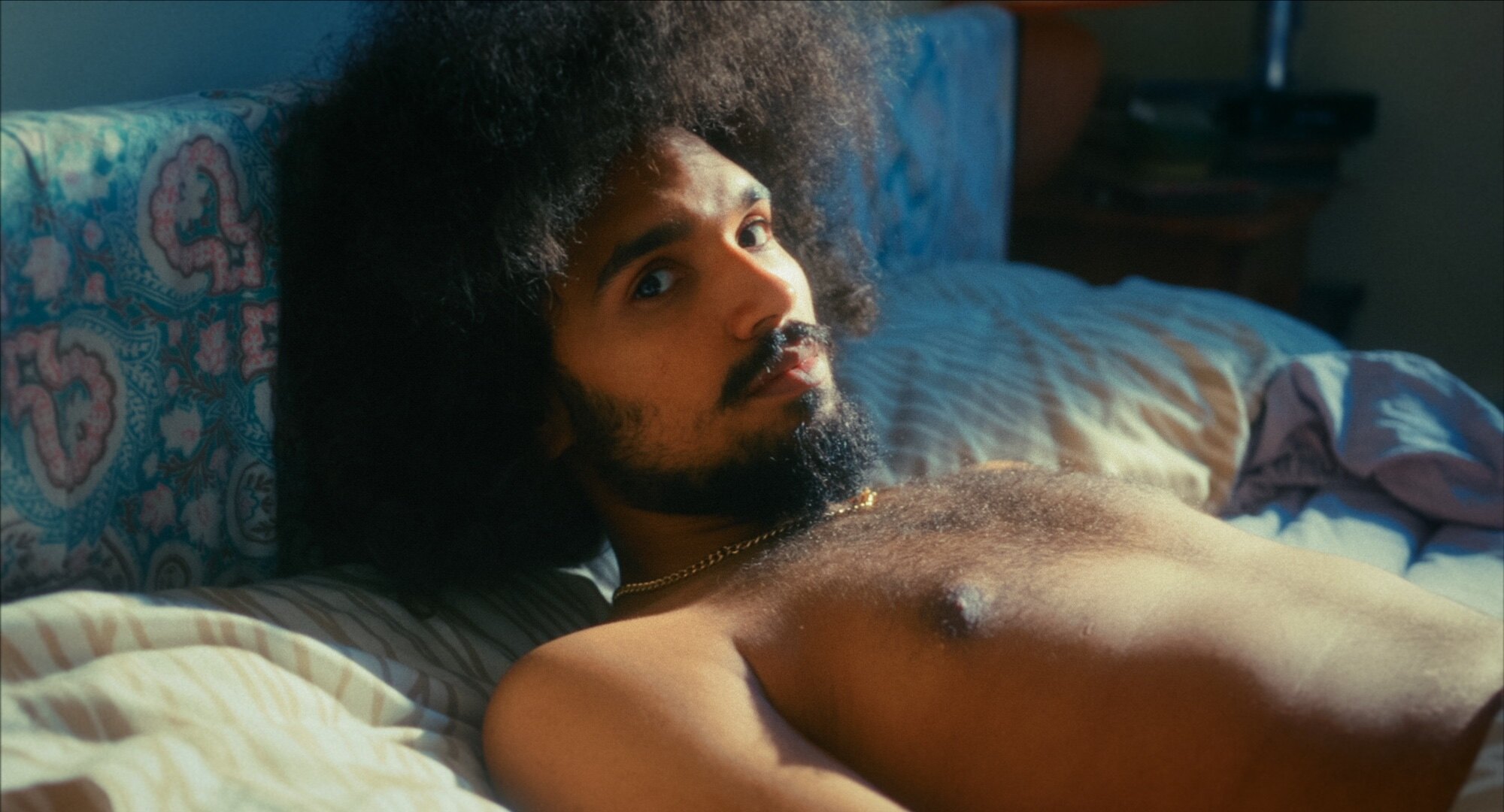
It’s been a long journey from the sounds of it but the online premiere is finally here. How does it feel to have Heart Failure out in the world?
I am really amazed at how far the project has come, to be honest. I’m also in total awe of everyone who has helped me make this happen. There was a point mid-lockdown where it felt like I’d never get a chance to make anything again, so to have had the opportunity to put all my energy into something I was so excited by is a testament to all the amazing people who have supported it. I hope the film brings you at least a little of the joy it’s brought me.
What’s next for you after Heart Failure? Do you have any more projects or films lined up?
It’s always tricky wrapping up a project because you have to strike a balance between putting as much energy as you can into new and exciting ideas, while also just focusing on doing your current project justice in distribution. I’ve got two shorts in development with my production team at Cool Bean; a horror and a comedy, they’re both very music-driven again. I’m also working on a Heart Failure TV series which has me just stupidly excited. Lots of fun things to come, I can’t wait. Plus, It’ll be great to make a film not socially distanced as well that’s for sure!

